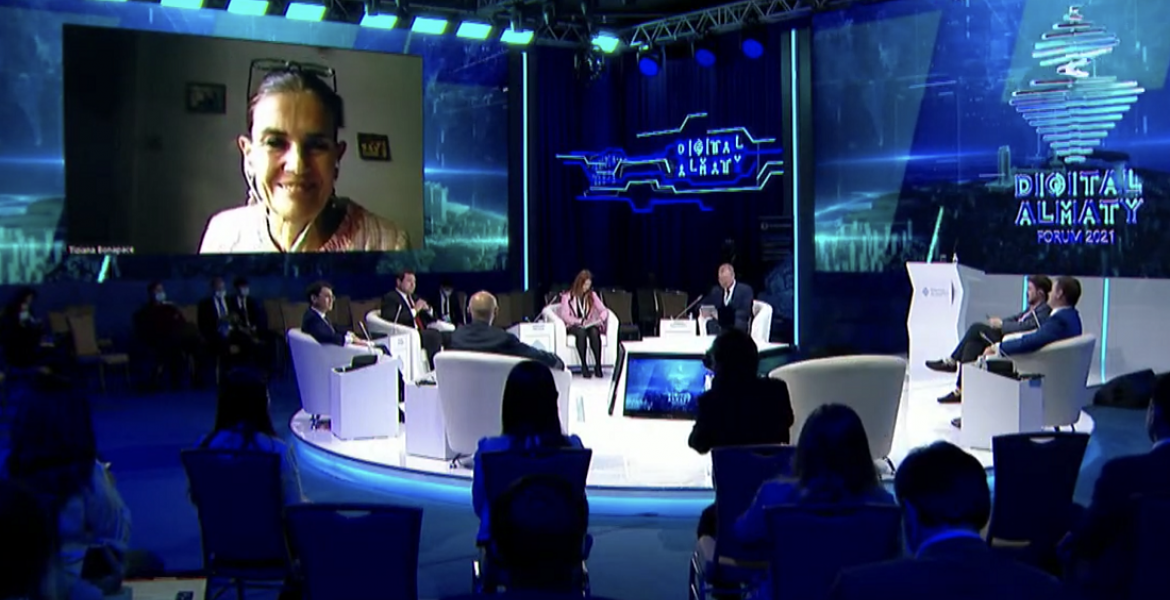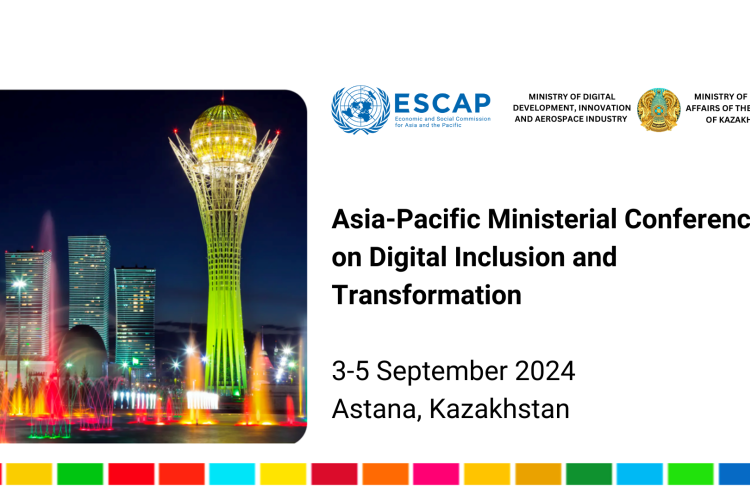Digital Almaty Forum 2021
We never had a more opportune moment for seamless digital infrastructure!
“We never had a more opportune moment. Can we work together better to seize this opportunity of a lifetime within the lifetime of the opportunity?” Ms. Tiziana Bonapace, Director of Information and Communications Technology and Disaster Risk Reduction Division at ESCAP, highlighted the importance of consistent investments in ICT infrastructure and multilateral cooperation for seamless digital connectivity and digital transformation at the “Digital Almaty Forum” on 5 February 2021. The “digital” now is at the heart of the changes and effective adaptation to COVID-19.
During the panel session on GovTech and Superservices, Ms. Bonapace had stressed that the cooperation among Governments and the business sector is essential for promoting superservices and innovation, as envisioned by the Kazakhstan’s Visionary 2050 Strategy. In addition to the point that the speed how the GovTech and superservices is changing is not enough, she continued that accelerated momentum is needed for at least 3 reasons:
1. Digitization is critical to successful responses to the pandemic as well as to an effective recovery process and building back better after COVID-10;
2. The pandemic crisis has revealed the digital divide creates and exacerbates societal and economic inequalities – rural/urban; rich/poor; youth/elderly; across genders;
3. As new digital frontier technologies converge, accelerate and bring about deep transformative changes, gigabit networks—faster speed, lower latency and more affordability—have become the underlying connectivity behind Internet of Things (IoT) and Artificial Intelligence (AI). These ICT infrastructures are a key enabler for enhancing inclusive and equitable development.
Under the framework of the Asia-Pacific Information Superhighway initiative, ESCAP has been promoting the co-deployment of fiberoptic cable along other passive infrastructure networks such as highways, railways and power networks as a cost-effective solution. Since around 80-90% of costs are related to digging/excavation work and obtaining construction permits/approval, co-deployment or installing cables concurrently with new highways, railways or electrification projects will enable governments to bring connectivity to the underserved or unconnected people at significantly lower costs.
In this connection, ESCAP is developing a policy making toolkit as a support for the decision-making tool to assist policymakers of North and Central Asia to determine the most promising smart transport corridors – i.e. highway/road with digital connectivity corridors. This toolkit will provide policymakers with simulation methodologies, various cost-revenue scenarios for construction and/or upgrading of existing infrastructure using various algorithms and formulae, and support the good practices.
In this regard, it is noteworthy that the Republic of Korea under its “New Digital Deal” announced the second phase of its co-deployment initiative entitled the “Renovation of FOCs from 2022-2025”. The key objective is to promote the integrated and networked development of these infrastructures with a 9% increase in funding (from USD 2.8 billion to 3 billion). The plan has brought 3 Ministers together, each concerning ICT; Industry; and Infrastructure and Transport.
Contact person: Aida Karazhanova, Social Media Focal Point of IDD, ESCAP.






